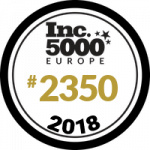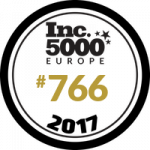Summary: The advantages of digitalisation are clear. Post-COVID-19, these will prove necessary to help a business recover from the crisis and return …
Procurement 4.0: What influences the
digitalisation of procurement and supply chains?
chain operations with your business using the Procurement 4.0 framework.
Why is digitalisation the driving force behind the evolution of business?
Digitalisation is the future of any business. No modern industry, process or operation is complete without some semblance of technology involved.
This is especially true for more vulnerable, central functions like procurement and supply chains.
The best way to strengthen procurement and supply chain operations is to turn to digitalisation. Procurement 4.0 ensures that this change is felt through every business operation, moving your business forward into the future of procurement and supply chain operations.
Implementing the best, most up-to-date solutions requires a shift towards Procurement 4.0. This shift is not always simple because while there are plenty of digital solutions available on the market, not all solutions will help you reach your specific business objectives.
Leverage Procurement 4.0 for greater business success today with targeted insights from industry professionals.
Explore Kronos Group procurement 4.0 solutions today.
Uncover the latest Procurement 4.0 framework
Whether it’s called digitalisation or the next industrial revolution, the combination of emerging technologies is revolutionising how businesses operate in the modern world.
With these changes, industries around the world are contemplating how these digital innovations are impacting their organisations and how they can add value to their supply chains and stakeholders.
This is where the new Procurement 4.0 framework is helping organisations take a 21st-Century approach to procurement.
The new Procurement 4.0 framework consists of 6 key areas:
New procurement value proposition
Digital category and service procurement
Digital supply chain and supplier management
Innovative procurement data utilisation
Digital processes and tools
Organisation and capabilities
The new Procurement 4.0 framework aims to meet emerging business requirements, develop value propositions, and integrate data across functions, resulting in the proactive and intelligent usage of data.
Our approach to Procurement 4.0
Enhance the efficiency of your procurement operations by adopting a future-focused procurement strategy with Procurement 4.0.
Industry 4.0 is all about ushering in the future of modern business practices. Procurement 4.0 is the purchasing and supply chain aspect of these efforts to modernise the procurement industry.
There is no single way to achieve Procurement 4.0 because each business has its own goals and, as a result, has its own framework through which these goals can be achieved. Our Procurement 4.0 framework is designed to complement your current processes and the goals you have set for yourself.
Discover how Kronos Group can help you implement cutting-edge Procurement 4.0 for sustainable growth and development through:
Category strategy and innovation
Strategic sourcing
SRM: audit, performance management, contract management, and risk management
Performance monitoring
Procurement business partnering
Explore our latest insights on the procurement, finance and project management fields.
Summary: Supply chain resilience refers to your company’s ability to withstand a crisis and return to efficiency, post-crisis. While resilience is a …
The digitalisation of business activity saved many companies from having to shut down when quarantine laws and lockdowns were initiated by governments …
FAQs
The fourth industrial revolution is enabled by the increasing rate of adoption of technological solutions—industrial IoT devices in particular—across all aspects of the business environment, including the supply chain.
For the supply chain, Industry 4.0 promises a global network of smart processes and machines that exchange information, operate autonomously and increase collaboration and transparency between suppliers, manufacturers, and customers across the product life cycle; from the moment the order is placed to the moment it is delivered to the end-user.
While Industry 4.0 spans many different concepts, the 12 foundational concepts are:
- Enterprise resource planning (ERP)
- Internet of Things (IoT)
- Industrial Internet of Things (IIoT)
- Big data
- Artificial intelligence
- M2M communication
- Digitisation
- Smart factories
- Machine learning
- Cloud computing
- Real-time data processing
- Ecosystems
- Cyber-physical systems
While supply chain management has traditionally been a human-intensive function, Industry 4.0 has prompted many industries to adopt digital technologies to digitise the supply chain and make it more efficient through greater collaboration and transparency.
According to certain studies, organisations that leverage digitised supply chains are experiencing a reduction in operational costs by 30%, lost sales opportunities by 60%, and inventory requirements by 70% while becoming more agile, efficient, and accurate.












